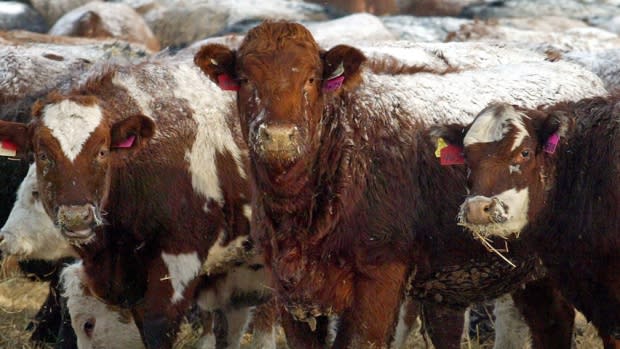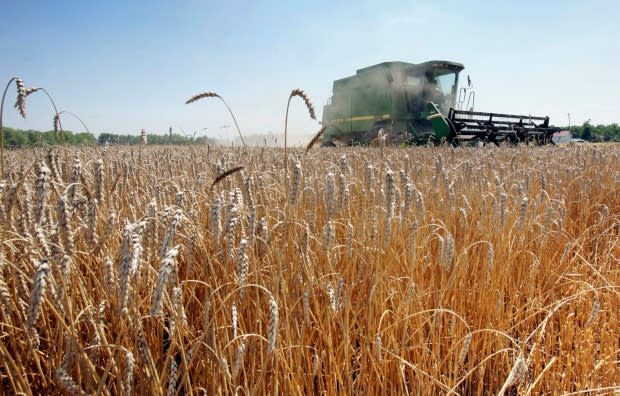$24M in funding announced for 3 U of Sask-led agriculture research projects
Livestock, lentil and wheat projects led by University of Saskatchewan researchers have received $24 million worth of funding from Genome Canada and its partners.
Three U of S led projects will share in the money from Genome Canada, a government-funded non-profit agency responsible for supporting large-scale science and genetics projects.
One of the projects is led by Western College of Veterinary Medicine professor Cheryl Waldner and University of Alberta assistant professor Simon Otto.
Waldner and Otto will study how to accelerate the diagnostic testing time for antimicrobial resistance in livestock management.
Waldner said antimicrobial resistance is one of the biggest challenges facing agriculture and public health across the world.

The research will lead to better use of antibiotics to treat bacterial infections in cattle, swine, poultry and other food animals, Waldner said.
"By having better diagnostic tests we will be able to better target our antibiotics that we are using and use the right drug for the right problem at the right time," Waldner said.
There will be about 20 people involved in the four-year project — researchers and veterinarians from the U of S will work along with vets, researchers and economists from the U of Alberta, as well as staff from Agriculture and Agri-Food Canada.
Their first goal is to optimize testing equipment that has been developed at Saskatoon's Prairie Diagnostic Services — a non-profit corporation dedicated to providing veterinary diagnostic services.
"They are going to work on developing and better optimizing those tools [such as handheld devices] that we are using," Waldner said.
"Then we will be working at the Livestock and Forage Centre of Excellence at the U of S to apply these tools, and to really see how well we can make them work in feedlot medicine."
Waldner said testing on animals that now takes a week to produce results could take just a day or less.
"This project will allow us to have results within a day and hopefully within a few hours by the time we are done the study," she said.
Being able to get the right antibiotics to the animals faster will better preserve the antibiotics now in use, and those antibiotics will work longer in those animals, she added.

The two other projects being funded involve wheat and lentils.
A project called 4DWheat: Diversity, Discovery, Design and Delivery is getting $11.2 million.
The project is led by the U of S wheat breeder Curtis Pozniak and Agriculture and Agri-Food Canada molecular geneticist Sylvie Cloutier.
They will look at how genomes can improve the breeding and production of wheat.
Pozniak said wheat is one of the most important crops for food security because it supplies the most calories and protein to the global population.

The researchers will explore how genomics can help diversify wheat breeding to enhance yield and stave off diseases.
Another $7 million will go to a project called Enhancing the Value of Lentil Variation for Ecosystem Survival.
U of S plant scientists Kirstin Bett and Bert Vandenberg will lead a team aiming to improve lentil production through genomics.
Bett said Canadian producers, who export $2.5 billion worth of lentils each year, will be able to use these future lentil varieties to capture the high-value food and ingredients markets.
The projects, administered by Genome Prairie, are part of a $76.7 million in funding for eight projects across the country, announced Tuesday by Science and Sport Minister Kirsty Duncan.


